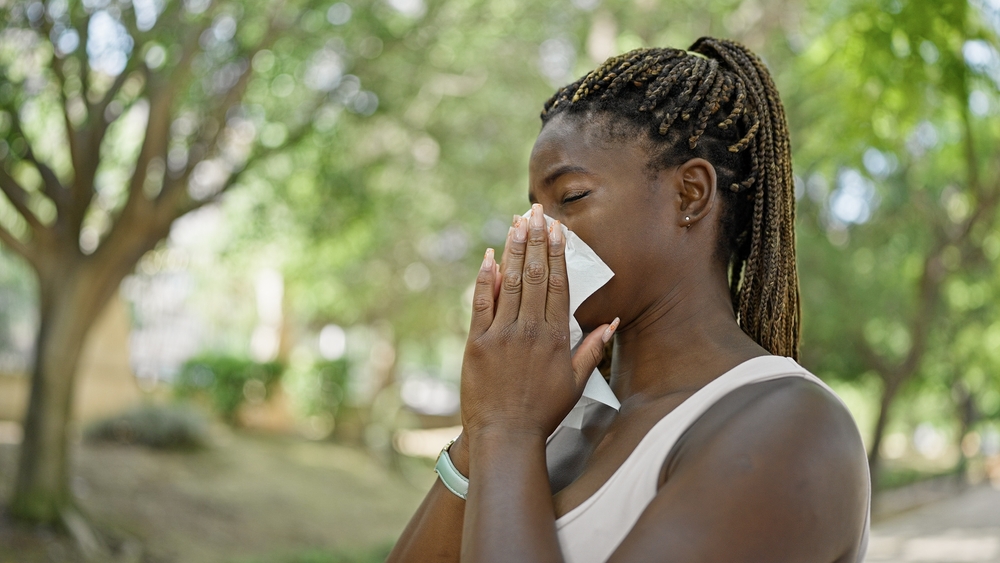
Do you have a much more difficult time when it’s really humid outside? The stickiness is bad enough, but it’s your sinuses that are the real issue. Sinus infections, medically known as sinusitis, can often be exacerbated by high humidity levels.
Symptoms of a sinus infection
Sinus infections, or sinusitis, can manifest in numerous ways, frequently causing discomfort and disturbance to daily life. When fluid containing viruses or bacteria builds up in the sinuses, a sinus infection is often the result.
Recognizing the symptoms is essential for timely intervention:
- Headaches: Sinus inflammation will often trigger pressure headaches.
- Fever: Sinus infections sometimes come with a persistent fever.
- Persistent Nasal Congestion: Sinus infections often result in stubborn nasal congestion lasting for ten days or more.
- Tooth Pain: Sinus pressure can expand to the teeth, causing discomfort and pain.
- Excessive Sinus Drainage: Another indication of a sinus infection is persistent sinus drainage.
You may not have these symptoms all at once, but you should get in touch with your doctor if you have any prolonged cold-like symptoms to rule out a sinus infection.
Can humidity cause sinus infections?
While sinus infections can be caused by a range of causes, humidity plays a substantial role in aggravating the condition. Despite initial skepticism, extreme humidity can certainly contribute to sinus infections because of its impact on respiratory defense mechanisms.
- Increased Vulnerability to Allergens: Fluid accumulation and sinus inflammation can be aggravated by extended exposure to irritants and allergens as a consequence of high humidity.
- Effects on Cilia Function: Humidity has an impact on the tiny hairs in your nasal passage that help move mucus around known as cilia. The body’s defense against infection can be compromised when severe humidity diminishes the functionality of these cilia.
What are optimal humidity levels?
It’s important to maintain an optimal humidity level. While it’s important for the cilia and defensive mucus to be somewhat moist, too much moisture can become a real issue.
You can gauge humidity levels by keeping track of the dew point and if it goes into or above the 70s, it’s time to take some safeguards.
Reducing the risk of a sinus infection caused by humidity
While total elimination of humidity-induced sinus infections may be challenging, numerous preventive measures can decrease the risk:
- Utilizing Nasal Sprays: Nasal sprays can help maintain optimal moisture levels in the nasal passages, supporting healthy cilia function and reducing vulnerability to infections.
- Avoiding Allergens and Irritants: Sinus swelling can be reduced when it’s humid out by attempting to avoid any known allergens. The risk of an infection can be reduced by avoiding things like going into the woods and avoiding places that are smokey.
When is it time to schedule an appointment?
Persistent or recurrent sinus infections, especially during humid periods, warrant consultation with an Ear, Nose, and Throat specialist. Depending on your sinus physiology, you might be more susceptible to a sinus infection if you have certain underlying medical conditions.
An Ear, Nose, and Throat specialist can offer personalized advice and recommend proper medications or interventions to promote sinus wellness.
Enjoy your summer free of sinus infections
People who have hearing loss can still take pleasure in all of the outside possibilities that summer provides. Individuals can protect against sinus infections and fully participate in the fun of summer by understanding how humidity impacts sinus health and taking preventative steps.
Contact us for an appointment for an assessment today.